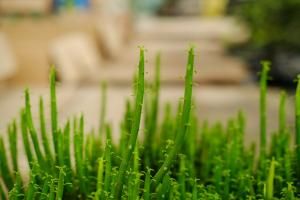Are Plantar Warts Contagious in Water?
Plantar warts are common skin growths that occur on the bottom of the foot. They are caused by the human papillomavirus (HPV) and can be quite uncomfortable, causing pain when walking or standing. One question that is commonly asked about plantar warts is whether or not they are contagious in water. In this article, we will explore the answer to this question and discuss ways to prevent the spread of plantar warts.
What Are Plantar Warts?
Plantar warts are small, round, and appear as small raised bumps on the skin. They can be painful and cause discomfort when walking or standing. The HPV virus causes plantar warts, and they can spread from person to person through direct contact. Although they are not usually a serious health problem, they can be difficult to treat and get rid of.
Are Plantar Warts Contagious in Water?
Plantar warts can spread from person to person through direct contact, but the virus is not easily spread in water. The virus that causes plantar warts prefers warm and moist environments, which makes it more likely to spread in places like locker rooms and swimming pools. However, the virus does not survive well in water and is less likely to spread through water. It is still a good idea to take precautions when in public areas, such as wearing flip flops in locker rooms and shower areas.
Preventing the Spread of Plantar Warts
There are several steps you can take to prevent the spread of plantar warts. First, avoid walking barefoot in public areas like locker rooms, swimming pools, and shower areas. Always wear shoes or flip flops to help prevent any contact with the virus. If you do have plantar warts, cover them with a waterproof bandage before entering the water to help prevent the spread of the virus.
Another important step is to practice good hygiene. Wash your feet regularly with soap and water, and dry them thoroughly after washing. This helps to keep your feet clean and free of any bacteria or viruses that could cause plantar warts to develop.
Treating Plantar Warts
If you do develop plantar warts, there are several home remedies that you can try. One common method is to apply duct tape to the affected area. Cover the wart with a small piece of duct tape and leave it on for about a week, then remove the tape and soak the affected area in warm water for a few minutes before gently rubbing the wart with a pumice stone. This process can be repeated until the wart disappears.
Another remedy involves using over-the-counter treatments like salicylic acid. These treatments work by slowly dissolving the wart, which can take several weeks to complete. Other treatments include cryotherapy, which uses liquid nitrogen to freeze the wart off, and laser surgery, which involves using a laser to burn off the wart.
Conclusion
In conclusion, plantar warts are caused by the HPV virus and can be quite uncomfortable. While they are contagious and can be spread from person to person through direct contact, the virus is not easily spread through water. You can prevent the spread of plantar warts by practicing good hygiene and avoiding walking barefoot in public areas. If you do develop plantar warts, there are several home remedies and treatments that can be used to get rid of them.

 how many times do yo...
how many times do yo... how many planted tre...
how many planted tre... how many pine trees ...
how many pine trees ... how many pecan trees...
how many pecan trees... how many plants comp...
how many plants comp... how many plants can ...
how many plants can ... how many plants and ...
how many plants and ... how many pepper plan...
how many pepper plan...

































